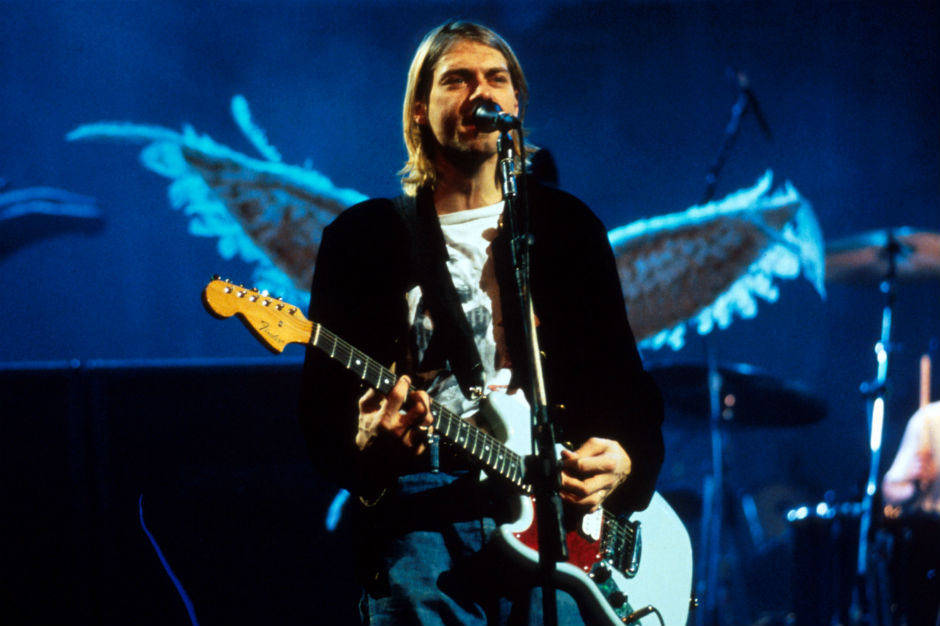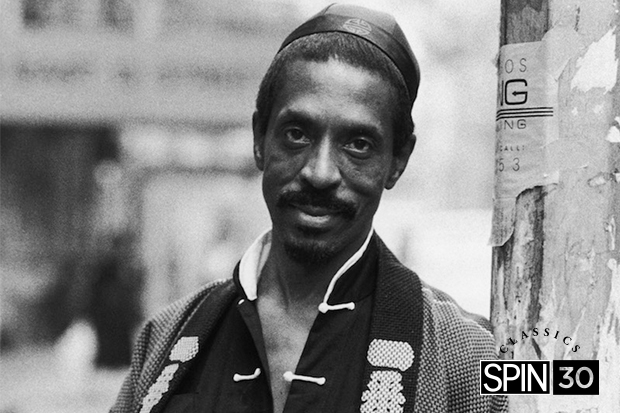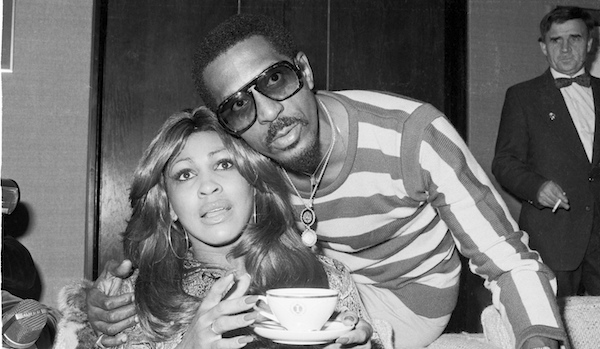After dismissing this issue with a shrug, Ike caresses Barbara’s leg again and returns to more familiar and pleasant territory: his lifelong pursuit of women.
“I love sexy girls, but let me tell you, man, speaking of mistakes, I’ll never marry no more as long as I’m chocolate. If there is anything called reincarnation, or whatever they talk about, I want God to make me a longer neck. That way I’d do my own self… I won’t need any woman. In other words, I’d be able to give my own self head.
“Ive been whorish all my life. Even as a kid I had to have a pretty girl. But man, this has caused me lots of trouble, lots.
“Now I got to do for myself, for lke. I bought Tina rings, mink coats — I never put aside a penny for Ike. If I had charged her for being the booking agency, the arranger, the director, the writer, if I had been paid a third of that, I wouldn’t be needy.

Also Read
THE DAY THE MUSIC DIED
“I gave my whole life to her, and after I did, she used me to a point, and then she didn’t need me anymore. She says she was brainwashed. Man, I never did that! Sure I have my ways, my temper, the women, but I was like that when I met her.” “I know people think I’m some pimp, that I just put her out there,” Ike says, his temper flaring. “She can have her ‘Private Dancer,’ ‘Whats Love Got to Do With It?’ I’ve started to do this other song instead.” Softening his voice and carefully enunciating each word, he melodically recites, “You’re asking everybody what love’s got to do with it/ Why, when you tried it, you didn’t want to quit it/ But now you wanna dome like the farmer do the potato/ You want to plant me now, come back and dig me later/ But you know you’re a fool, you know you’re in love/You’ve got to face it to live in this world/ you’ve to take the good along with the bad/ Sometimes you’re happy, and sometimes you’re sad/ You know you love him, but you don’t understand why he treat you like he do/ He has you smiling when you should be ashamed/ Got you laughing when your heart’s in pain/ Oh now, you know you’re a nut, you let that man get your mind messed up/ How come? You’re just a fool. You know you love him.”
Playing nervously with a book of matches, Ike plaintively says, “I really do care for that woman. I hate that we don’t communicate, that she forgot where she came from. I don’t know man, she always said she never wanted to be black. And she’s really showing that. I wonder if she’s doing all these write-ups to convince some people that she’s not coming back to me, so that she can reach her goals. After she does that, maybe she intends to come back and say, ‘See, I did it, I did it by using whitey to get there. Now you do it.’ I think she’s doing this stuff just to prove something to me. Why else would she still be talking about me after all this time?”
Ike takes a wad of hundred-dollar bills from his pocket and throws one on the table.
“Come on, let’s go,” he shouts at Barbara. “I can’t talk no more. I’m too stirred up.”
Not bothering to wait for change, he walks quickly through the restaurant to the rear parking lot. While waiting for the attendant to take his ticket, he grimaces and again attacks Tina’s new image.
“Believe me, man, I don’t want anything bad to happen to her made mistakes. I dealt with Tina physically instead of mentally. It’s very hard to deal with black women mentally. It’s like you have to put some fear in them to communicate.
“But what she’s doing with our kids now just isn’t right. She’s convincing white people that she only cares about one of her kids, the one [Craig] she had before me. The others, especially our son [Ronnie], she’s saying she never wanted him, that she didn’t want to mother him. That hurt me, man. When we were together we never treated any of them differently. Not Ronnie, Craig, or the two sons had before Tina [Ike, Jr., and Michael]. Since we broke up, she’s saying that Craig is the only one she wanted to mother. This is the only time I’ve really been mad at her. Can you imagine those kids walking around and people saying, ‘Ah-ha, Tina ain’t your mama.’ I don’t care what she says about me, but my kids, that ain’t right.
“Michael once tried to physically take me out of the studio to take him to see Tina. He desperately wanted to see her, so he went to her house, to bring her back to me, and she put him in a nut house [in Calabasas, California, a tiny highlands town north of Los Angeles].
“The kids can’t even go to see her. They don’t have her phone number. They have to talk to her sister, Eileen. Tina won’t even talk to them. Tina’s changed so much, she’s changed so much… don’t know why she’s doing this.”
Later Ike Jr., also a musician, explained to me: “Michael wanted my mother and father to get back together, and the next thing knew he was in the hospital. He was hurt by their being apart. I didn’t think he was crazy. They kept him in this place a long time. I thought he was normal. I don’t know why she did that.
“I’ve tried to call my mother at her management’s offices. They take a message. I’ve called a good 10-15 times, but I’ve never heard from her. I know she’s busy, but I don’t know why she hasn’t called. I love her, she brought me up, she’s my mother.
“It kind of feels like she’s neglecting us, at least us three, me, Michael, and Ronnie. I talk to Ronnie all the time, and he doesn’t hear from her. It’s to the point now where we’re always wondering, ‘where is she?’ I got a book from her last Christmas. I feel that now that she has her stuff together she doesn’t really think about none of us. Not like my father did. He never treated any of us any differently, but she does.”
Depleted, Ike leans against a column outside the restaurant waiting for the valet to bring his car. As the car arrives, Barbara kisses me goodbye. Muttering to himself, Ike slides into the front seat and bangs the door shut. He sits there silently for a few moments before announcing, “We’ll finish this soon. I’ll see you in New York in a few weeks.”
A week later, Ike calls me at 2 a.m. from L.A. His voice is heavy, strained with emotion. “Man, that woman keeps talking about me. Did you see her on that f—king Good Morning America?” he complains, sounding as if the walls of his house are closing in on him. More epithets follow. He talks about Tina’s disinterest in the kids, the trouble he’s having getting started again, and Tina’s continued badmouthing. He’s having a bad night. We talk for two hours. Then he abruptly hangs up.
Three days later, photographer Earl Miller arranges a meeting with Ike, but as he prepares for the shoot, someone calls for Ike and cancels. Two more days pass without any word from Ike. Then, after several unanswered phone calls, Miller is suddenly told to appear at an L.A. address. He’s led through a maze of rooms before being brought to Ike. Ike explains he had to cancel the previous meeting because two men had appeared at his house with guns and taken two of his cars.
Hearing of Ike’s troubles, I try to call him, to see how he is. But all his phone numbers have been changed.
All photos courtesy of Getty Images except Photo 2 (Rob Mieremet/Creative Commons)





